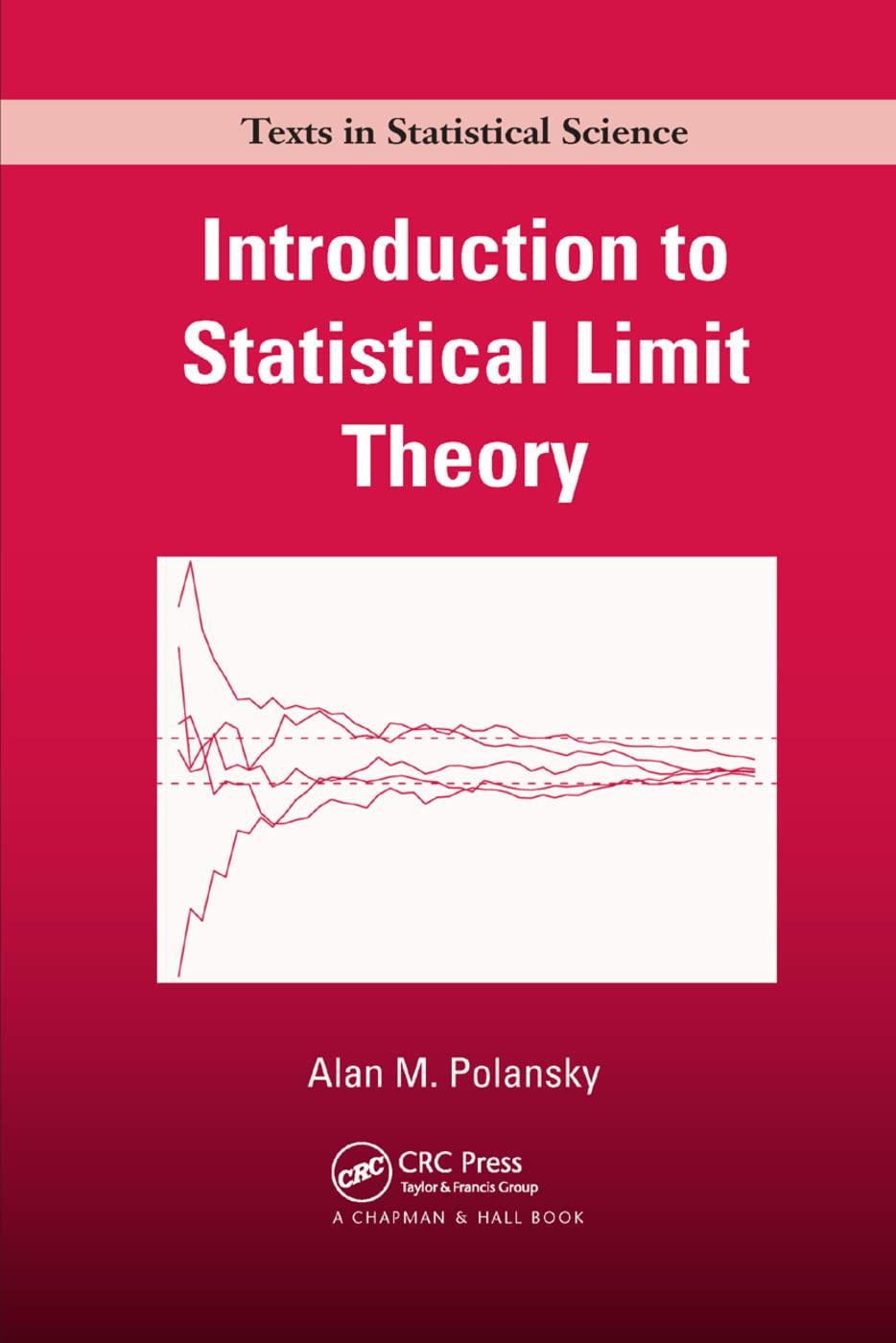Let (X_{1}, ldots, X_{n}) be a set of independent and identically distributed random variables from a distribution
Question:
Let \(X_{1}, \ldots, X_{n}\) be a set of independent and identically distributed random variables from a distribution \(F\) with mean \(\mu\). Define \(\theta=g(\mu)=\mu^{2}\), and let \(R_{n}(\hat{\theta}, \theta)=n^{1 / 2}\left(\hat{\theta}_{n}-\thetaight)\) where \(\hat{\theta}_{n}=g\left(\bar{X}_{n}ight)=\bar{X}_{n}^{2}\). Let \(H_{n}(t)=\) \(P\left[R_{n}\left(\hat{\theta}_{n}, \thetaight) \leq tight)\) with bootstrap estimate \(\hat{H}_{n}(t)=P^{*}\left[R_{n}\left(\hat{\theta}_{n}^{*}, \hat{\theta}_{n}ight) \leq tight]\). Using the theory related by Theorem 11.16, under what conditions can we conclude that \(d_{\infty}\left(\hat{H}_{n}, H_{n}ight) \xrightarrow{\text { a.c. }} 0\) as \(n ightarrow \infty\) ?
Fantastic news! We've Found the answer you've been seeking!
Step by Step Answer:
Related Book For 

Question Posted:





